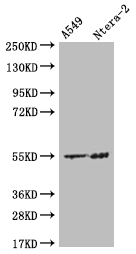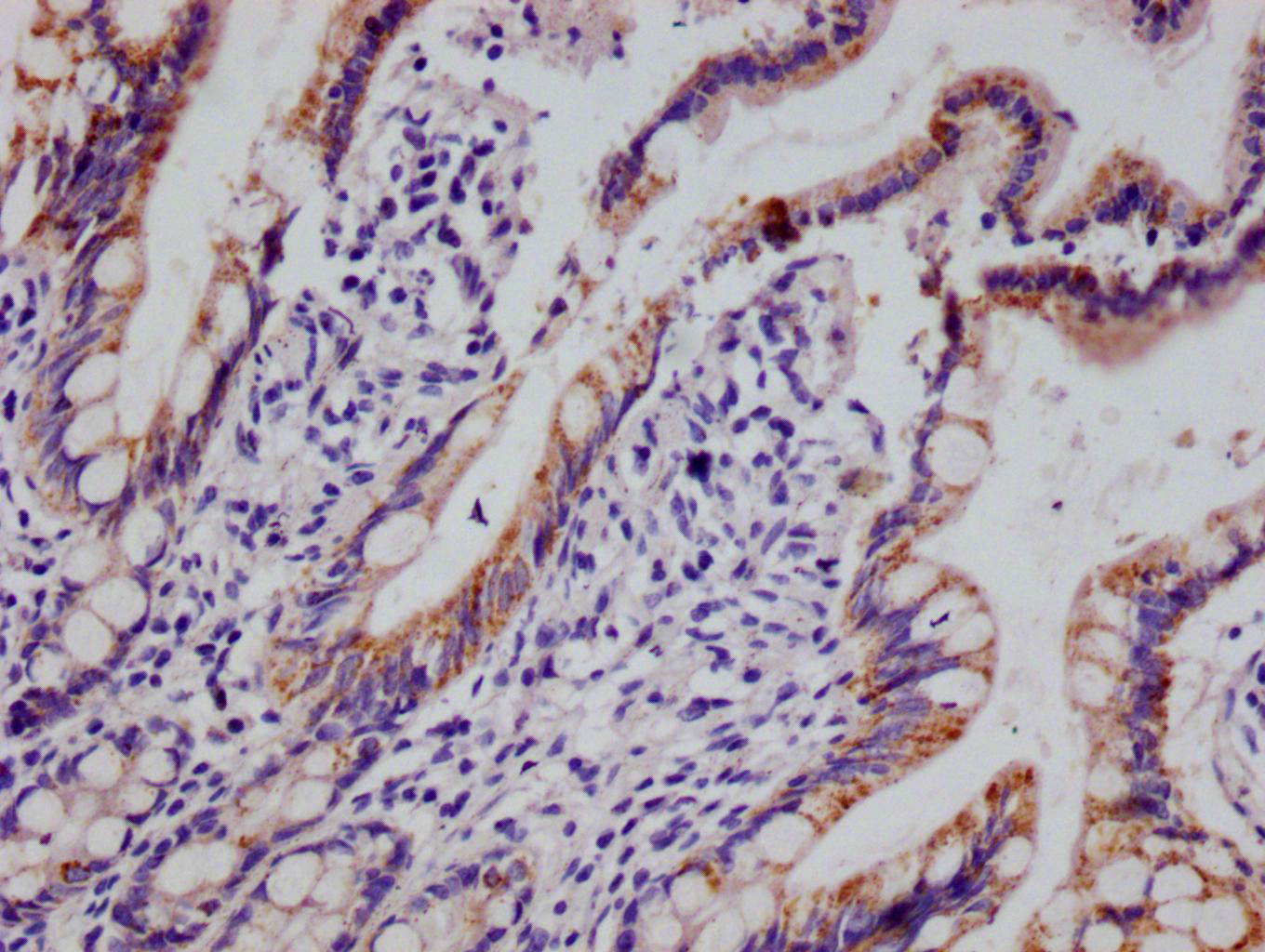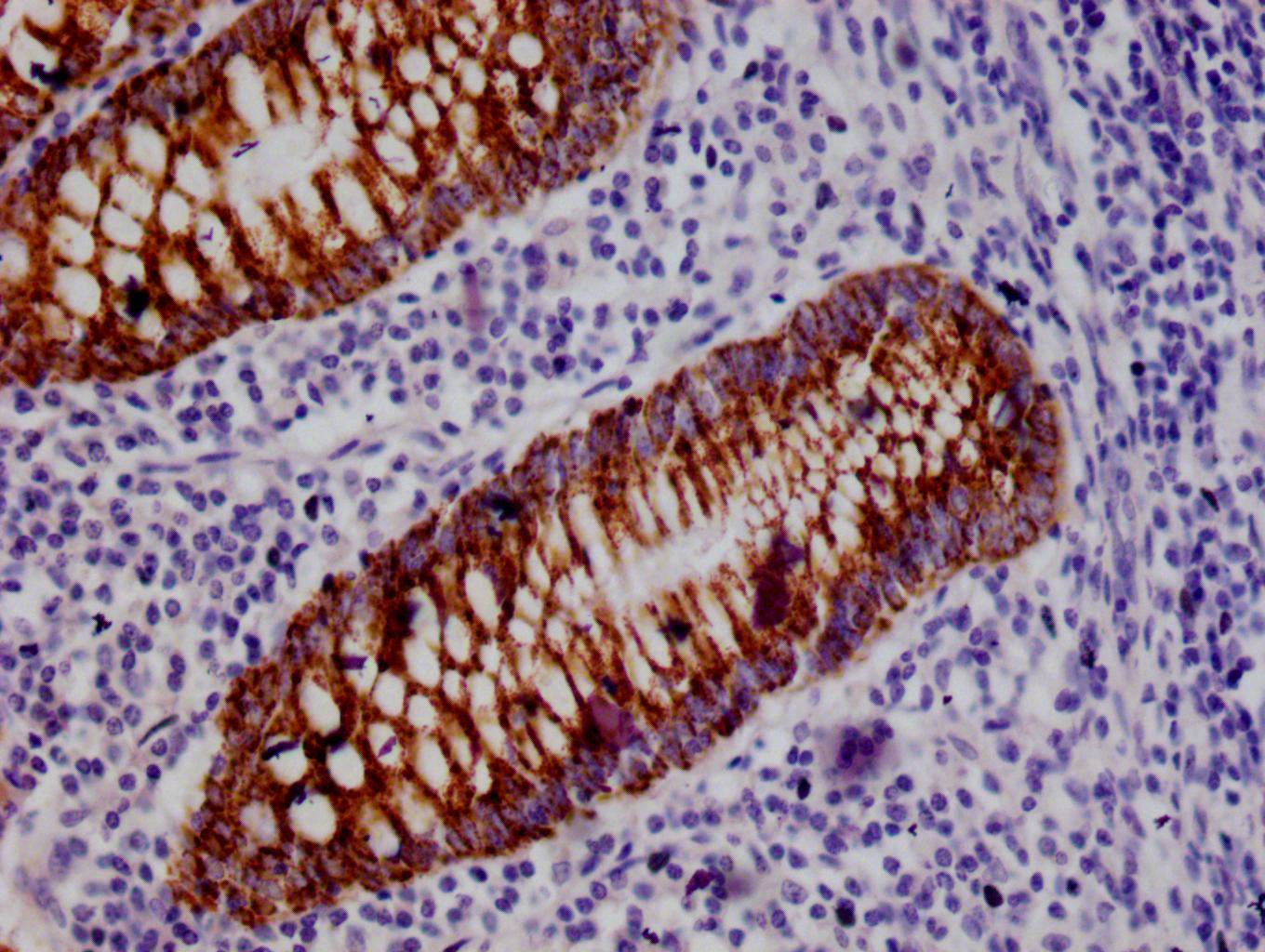The production of the HMGCS2 recombinant monoclonal antibody involves a carefully orchestrated process that includes the following steps. Initially, B cells are isolated from an animal immunized with a synthesized peptide derived from human HMGCS2. Total RNA is extracted from the harvested B cells, and cDNA is synthesized through reverse transcription. The HMGCS2 antibody genes are then amplified using PCR with specific primers and cloned into an expression vector. This vector is transfected into host cells to facilitate the production of the HMGCS2 recombinant monoclonal antibody. Afterward, the antibody is purified from the cell culture supernatant using affinity chromatography. To ensure its quality, the purified antibody undergoes rigorous characterization and validation, including ELISA, WB, and IHC analysis, to confirm its specificity and ability to recognize human HMGCS2 protein. This systematic approach guarantees the generation of a reliable HMGCS2 recombinant monoclonal antibody suitable for various applications in the study of HMGCS2 protein.








